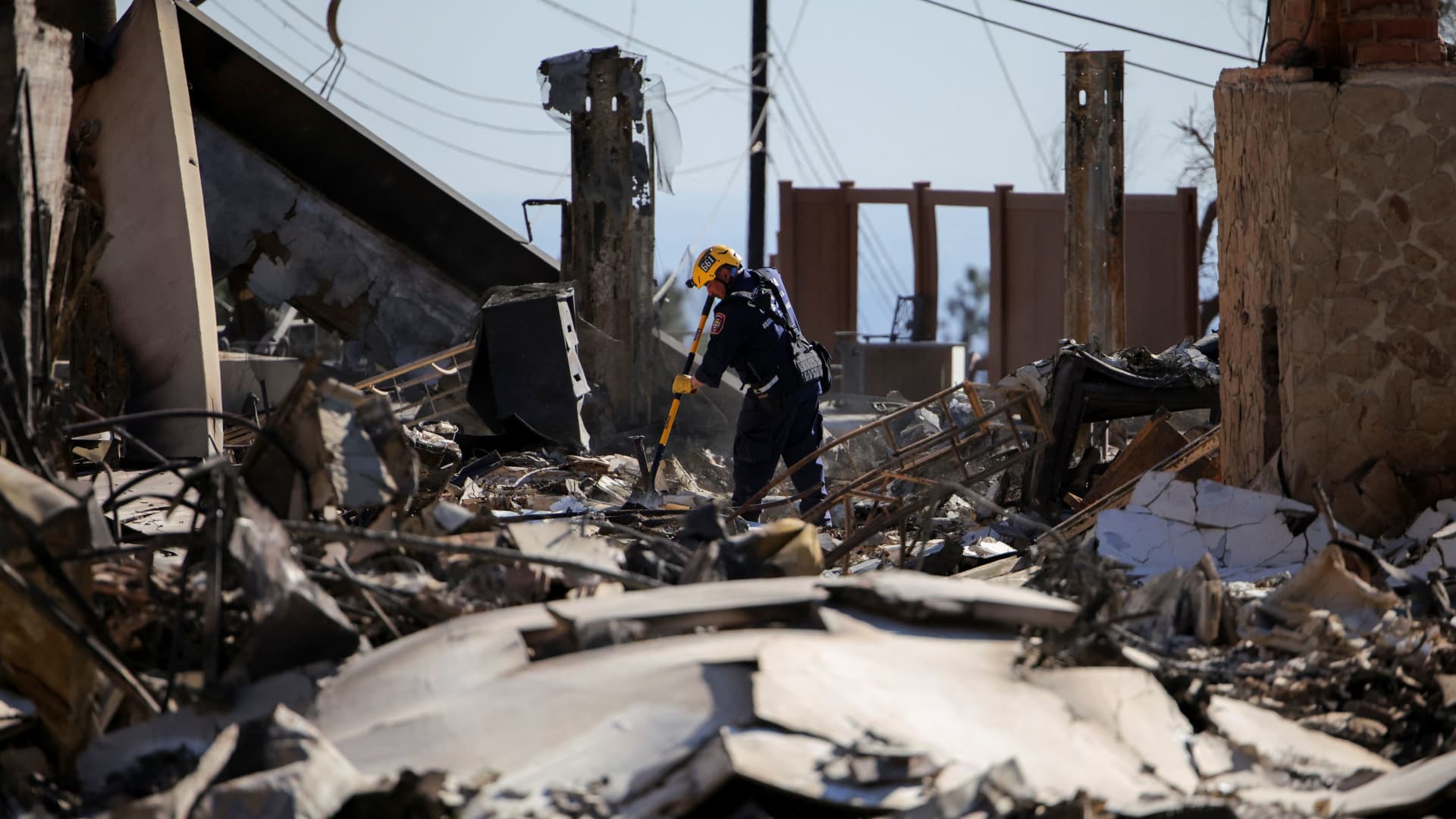Despite the devastation being wrought by the wildfires in California, the disasters should not have a big impact on the municipal bond market, according to Wells Fargo. The interest earned on municipal bonds are free from federal tax and may be exempt from state and local taxes if the investor resides in the same state as the issuer. As a result, munis are favored by wealthy investors, especially those in high-tax states — including California. More than 150 wildfires have spread across southern California since last week, scorching about 41,000 acres and destroying at least 12,300 structures . At least two dozen people have been killed. Still, muni bond issuers have historically walked away unscathed from natural disasters, in the long run, Wells Fargo analysts led by Lucas Baker wrote in a wrote earlier this week. “Strictly from a bondholder perspective, municipal issuers have a strong track record of recovering from natural disasters without impairment to bondholders,” he wrote. No defaults In fact, Moody’s Ratings data shows no state or local government whose bonds are rated by Moody’s has defaulted in natural disaster scenarios, he pointed out. “In the medium- to long-term, history shows that [Federal Emergency Management Agency] and other reconstruction efforts create economic activity that can stabilize financial operations and economic developments,” Baker said. For instance, while Hurricane Katrina caused an estimated $105 billion in property damage in 2005, the affected communities made debt-service payments in full and on time, he noted. Investors can either buy the bonds themselves or get exposure through a fund. While the largest muni bond exchange-traded funds have diverse holdings across the nation, others focus on single states, like California. The fires may still be burning, but talk is already turning towards recovery. On Sunday, California Gov. Gavin Newsom signed an executive order to waive certain requirements for reconstruction, which will allow for faster rebuilding. FEMA is also on site. Its continued funding of natural disasters, currently around 75% to 100% of emergency costs and up to 75% of hazard-mitigation projects, is crucial to stabilizing communities and ensuring bondholders are repaid, Baker said. Some impact That said, there could be some impact on the market, he said. “Issuers face the potential for short-term cash-flow disruptions due to impaired operations, increased service demands and related overtime costs, or short-term revenue declines,” Baker wrote. In addition, disruptions of operations in finance, trust or paying agent offices may cause a temporary delay in bond payments, he added. While it is too early to tell the full extent of the damage and how long it will take to recover, cities and counties with broad tax bases should be better positioned to withstand credit pressures in the short and medium term, Baker said. Large institutions that don’t have taxing authority, like those in health care or higher education, but with substantial reserves should also be fine, he noted. However, munis supported by smaller, limited tax bases, such as tax-allocation bonds, could be more sensitive to moderate reductions in their tax and customer bases, Baker said. In addition, single-asset obligors could have short-term cash-flow challenges, he noted. Lastly, uninsured bonds in damaged areas that were rated BBB and lower could be at greater risk of falling below investment grade or experiencing payment defaults, he said. “Bondholders who are concerned about headline or credit risk could consider reducing their exposure at this time,” Baker said.





